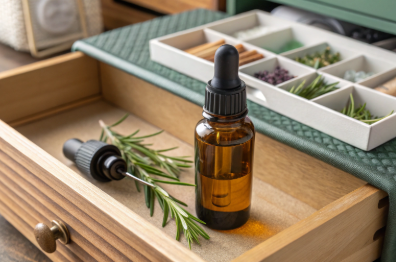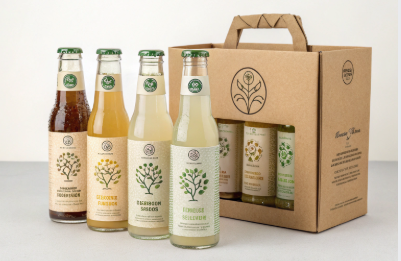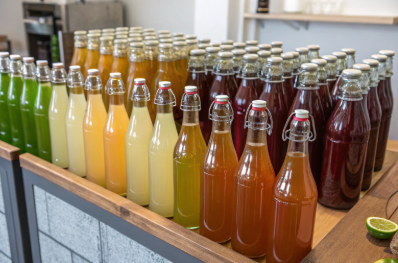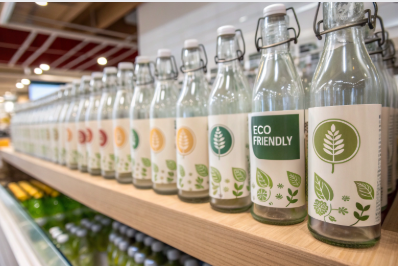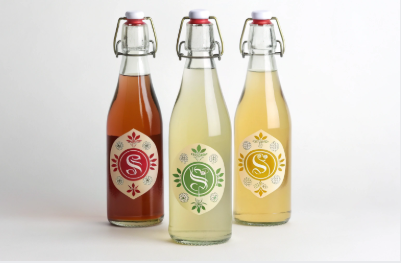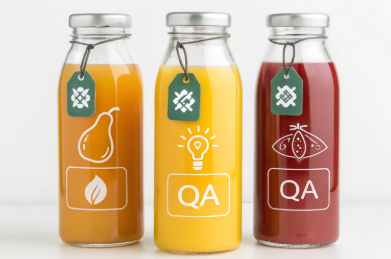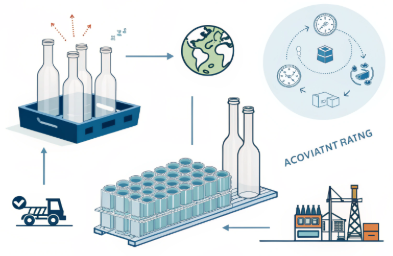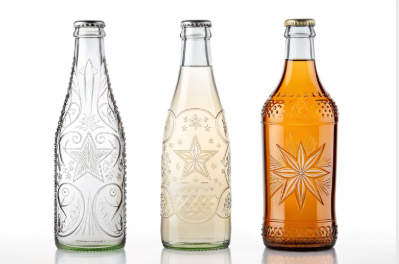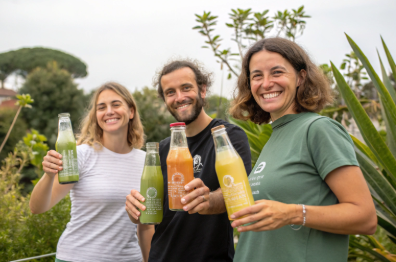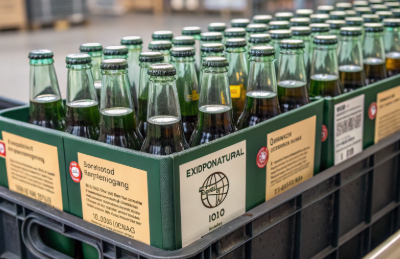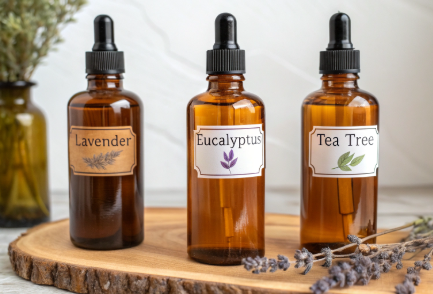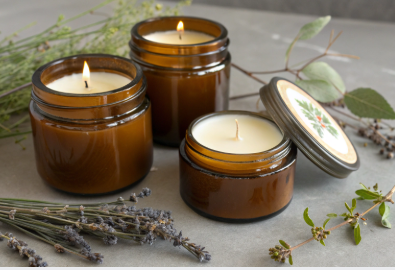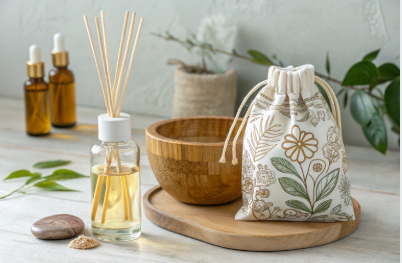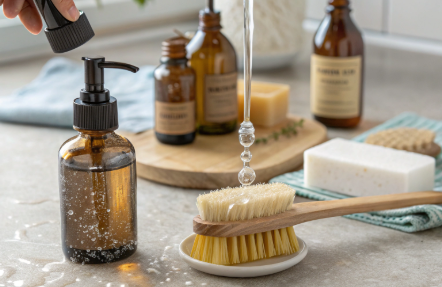Plastic fatigue, eco-conscious consumers, and premium branding are pushing beverage companies to rethink their packaging—glass is making a comeback.
Glass bottles are gaining traction in the beverage industry due to their sustainability, premium appeal, and chemical stability, offering both branding and functional advantages.
At PauPack, we've seen this shift firsthand. From artisanal juice makers to global beverage distributors, more brands are turning to glass. Here's why—and how to source smarter.
Why are beverage brands switching back to glass bottles?
For decades, plastic reigned supreme for convenience and cost. But the tide is turning.
Beverage brands are choosing glass bottles again for their eco-friendly profile, better flavor preservation, and rising consumer demand for sustainable packaging.
Key Drivers Behind the Shift:
1. Flavor Integrity
Glass is non-reactive, preserving the true taste of the drink inside. No more “plastic-y” aftertaste—ideal for juices, kombucha, coffee, and spirits.
2. Consumer Perception
A study by EcoFocus shows 73% of consumers associate glass with “healthier” and “safer” products. That matters for health drinks and premium beverages.
3. Reusable and Recyclable
Unlike single-use plastics, glass bottles are refillable and infinitely recyclable without quality loss.
At PauPack, we support this shift by offering 10oz to 16oz juice bottles, blue mason jars, and high-borosilicate swing-top containers designed for flavor-conscious and health-focused brands.
What sustainability trends are driving glass bottle demand?
The beverage industry is under pressure to go green—from regulators, retailers, and especially Gen Z.
Sustainability goals, plastic bans, and closed-loop initiatives are fueling the move to glass bottles in both carbonated and non-carbonated drink sectors.
Green Trends Accelerating Glass Adoption:
1. Extended Producer Responsibility (EPR)
Governments are now requiring brands to account for packaging lifecycle. Glass fits easily into circular models.
2. Plastic Ban Legislation
Cities and countries are outlawing certain types of plastic packaging. Glass provides a legal-safe alternative.
3. Zero-Waste Stores and Refill Systems
Reusable glass bottles are ideal for stores offering return or refill programs.
4. Brand ESG Commitments
Companies are racing to meet ESG (Environmental, Social, Governance) goals—and packaging is low-hanging fruit.
PauPack is deeply aligned with these trends. Our factory uses 100% renewable energy and an 80% closed water loop. We offer fully recyclable, food-grade glass that helps your brand tick both regulatory and reputational boxes.
How do glass bottles enhance product branding and shelf appeal?
Let’s be honest—glass just looks better.
Glass bottles elevate your beverage’s perceived quality, offer clear visual cues of purity, and allow for premium custom branding that plastic can’t match.
Branding Advantages of Glass:
1. Transparency = Trust
Customers can see your beverage’s color and clarity. This is crucial for juices, teas, and natural drinks where ingredients matter.
2. Luxury Aesthetic
Glass signals premium quality. That’s why spirits, wines, and craft sodas choose it—it helps command higher shelf prices.
3. Custom Shapes and Decoration
Glass offers flexibility: square, heart, swing-top, frosted, embossed. Your bottle becomes a brand ambassador.
4. Better Label Performance
Labels stick better to glass and stay readable—important for regulated markets.
At PauPack, we specialize in customizable glass bottles for beverages. From logo-engraved swing-top designs to silk screen-printed juice bottles, we turn containers into brand assets.
What are the logistical and functional benefits of glass bottles?
They’re not just pretty—glass bottles deliver on performance and durability too.
Glass bottles offer better temperature resistance, chemical stability, and longer shelf life, especially for acidic, carbonated, or fermented drinks.
Functional Edge of Glass:
-
Heat and Cold Tolerance: Glass doesn’t warp or degrade with temperature shifts—ideal for hot fills and refrigeration.
-
Barrier to Oxygen and Moisture: Extends product freshness, especially for beer, kombucha, or milk.
-
Reusable in Return Systems: High strength-to-weight ratio allows multiple reuse cycles.
-
No Leaching Risk: BPA-free, phthalate-free by nature.
PauPack’s bottles undergo rigorous QA and meet FDA, EN, and ISO 9001 standards. We’ve supported juice brands, dairy companies, and kombucha makers worldwide with safe and scalable packaging.
How can beverage companies source glass bottles more efficiently?
Supply chain disruptions and rising costs are real—but so are smarter sourcing strategies.
Beverage brands can streamline sourcing by working with manufacturers like PauPack that offer end-to-end services: mold development, custom labeling, global delivery, and flexible MOQs.
Here’s How We Help:
-
Factory-Direct Pricing: Cut middlemen and improve margin.
-
Fast Sampling: 7–10 day turnaround for custom bottle molds or decoration.
-
Stock and Custom Options: 3000+ SKUs, plus full OEM/ODM.
-
Low MOQs for Small Batches: As low as 1000 pcs for pilot runs or seasonal flavors.
-
Global Logistics: Warehouses in 6 countries, with reliable JIT delivery models.
Whether you need a 12oz juice bottle for a Shopify store or 100,000 swing-top bottles for retail export, PauPack ensures your glass bottle sourcing is efficient, consistent, and brand-ready.
How are beverage startups using glass bottles to differentiate?
In today’s competitive landscape, young beverage brands need every edge they can get—and glass delivers one.
Startups use glass bottles to signal quality, build trust, and craft a more memorable unboxing and consumption experience that sets them apart.
Why Founders Choose Glass:
1. Instant Premium Perception
For wellness shots, kombucha, cold brew, or fresh juice—glass conveys that the product is artisanal, fresh, and worth a higher price tag.
2. Custom Shapes = Brand Identity
Unique bottle shapes create “Instagrammable” moments and reinforce product uniqueness. Think: square bottles for detox blends, or vintage swing-top for carbonated tonics.
3. Eco-Conscious Positioning
Young brands align with eco-minded Millennials and Gen Z by adopting reusable, recyclable packaging from day one.
At PauPack, we work with early-stage beverage brands to co-develop glass bottle solutions that reflect their product values. From 1000-unit low MOQ custom molds to decorative etching, our job is to help founders scale with style.
What role do consumer preferences play in glass packaging trends?
Today’s consumers are smart, vocal, and values-driven—and their preferences are shaping packaging choices across the board.
Shoppers prefer glass for its safety, sustainability, and aesthetics, making it a top packaging format in health and premium drink categories.
Trends Driving Consumer Choice:
1. Health First
According to Nielsen, 64% of shoppers think glass is the safest packaging material for food and beverages. It’s chemical-free, inert, and BPA-free by nature.
2. Visual Appeal
Transparency lets consumers see product freshness, while textured or colored glass bottles increase shelf impact.
3. Eco Impact Awareness
81% of global consumers want brands to reduce plastic. Glass’s 100% recyclability is a clear win.
4. Reusable Culture
Glass supports a lifestyle of reuse. Think refillable cold brew jars, milk bottles, or sparkling water delivered in glass.
PauPack’s beverage clients often come to us with a brief like: “We want something that looks sustainable and feels high-end.” That’s why we offer both stock and custom eco-glass bottles with decorative finishes and airtight lids.

How does glass packaging improve shelf life and product stability?
Packaging isn’t just branding—it’s chemistry. Especially when dealing with perishable or active beverages.
Glass provides an airtight, non-reactive barrier that extends shelf life, preserves carbonation, and maintains product integrity better than most alternatives.
Functional Advantages of Glass:
-
No Leaching: Unlike plastic, glass won’t leach compounds or absorb odors.
-
High Barrier Properties: Blocks oxygen, moisture, and UV light (with amber or blue tones).
-
Ideal for Acidity: Perfect for vinegars, kombuchas, and citrus drinks.
-
Supports Hot or Cold Fill: Can handle pasteurization or chilled distribution.
PauPack supplies glass bottles tested for thermal shock resistance and high-pressure tolerances. Whether you’re bottling tea, kefir, or juice, our packaging is designed to maintain shelf integrity throughout the distribution chain.
Why are global markets favoring glass bottles in exports?
Exporting beverages means navigating regulations, long transit, and shelf competition. Glass has emerged as the preferred format.
From the EU to the Middle East, importers prefer glass bottles for premium drinks due to compliance ease, presentation, and sustainability alignment.
Export-Friendly Features:
1. Meets Global Compliance
Glass is accepted worldwide as food-safe. Many countries have bans or heavy tariffs on single-use plastics.
2. Elegant for Duty-Free & Specialty Retail
A glass bottle on a duty-free shelf says “luxury.” It helps justify a higher price point for wines, juices, and flavored waters.
3. Temperature Stability in Transit
Glass holds up better to container conditions—less warping, no melting, less spoilage risk.
At PauPack, we’ve shipped to 52+ countries. Our export services include durable packaging, multilingual labeling, and bottles that meet FDA, BPOM, EN and ISO 9001 standards. Whether you're shipping a case or a container, we make sure your glass bottles arrive intact and impressive.
What should B2B buyers consider when choosing glass bottle suppliers?
Sourcing the right bottle is about more than price—it’s about reliability, design compatibility, and post-sale support.
B2B buyers should assess supplier capabilities in customization, logistics, compliance, and MOQ flexibility to ensure supply chain resilience.
Key Questions to Ask:
-
Can you support low MOQs and scale to high volume?
-
Do you offer custom molds, decoration, or eco-materials?
-
What certifications and quality controls are in place?
-
How fast can you deliver samples and production batches?
-
What logistics or warehousing support do you provide?
PauPack answers "yes" to all of the above. With over 3000 glass packaging SKUs, a 40,000m² factory, and local teams across 6 countries, we’re designed to support beverage buyers from prototype to pallet.
Conclusion
Glass bottles aren’t just a packaging comeback—they’re a strategic investment in product quality, sustainability, and consumer trust. At PauPack, we help beverage brands bottle all of that—with elegance and efficiency.




